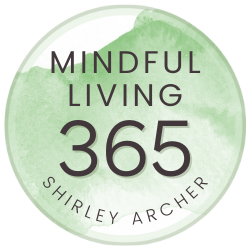5 TIPS FOR STAYING GROUNDED AND CENTERED DURING PANDEMIC TRAVELS
While many of us are excited to travel again, life continues to unfold with uncertainty. Rules keep changing. It’s hard to know what will arise.
This is a perfect opportunity for mindfulness in action.
What do I mean by that?
Mindfulness practice helps you to stay grounded in the present, to experience what is, as it is, without preconception.
To avoid disappointment and related stress, it’s important to manage expectations. Most stress occurs when we fight in our mind with reality. In other words, we desire things to be different from what they are and we become angry.
If we practice keeping an open mind, free of too many expectations, then we can more easily roll with the punches, so to speak.
How to Invite Mindfulness into Your Travels
Remind yourself that life is different now. Expect delays, expect requirements like masking, social distancing and hand disinfecting. Then, if those rules are not in place, you can enjoy fewer restrictions.
Better to expect restrictions and be pleasantly surprised rather than to expect no restrictions and then be angered by requirements.
If you prefer to practice restrictions, for example, if you’re living with a compromised immune system, allow yourself the freedom to observe restrictions. Do your best to avoid those who refuse to respect your needs.
While contact with some may be unavoidable; you may choose to assert your needs. But, be prepared that many these days choose not to respect those who prefer heightened safety practices.
It may not be comforting, but again, best to prepare yourself for an unpleasant reality, than to have unrealistic expectations that others will conform to your individual needs.
Here are 5 tips for staying grounded and centered while you travel.
1. Pause and Breathe
Before any next step, like standing in line at a check-in counter, pause. Find a moment before you enter the queue to breathe deeply for at least one minute, if not more.
Follow a 10-12 second breath cycle with up to a 6 second inhalation and exhalation. Try to make the exhalation longer than the inhalation as that promotes more relaxation, working up to a 1:2 ratio.
For example, inhale for 4 to 6 seconds and exhale for 6 to 8 seconds—whatever your capacity is for the longest breath cycle possible.
2. Remind Yourself of Your Why
As you breathe, remind yourself of your trip’s purpose, why it matters. Keep focused on your big picture. This will help you overcome smaller hassles.
For example, if you’re making time to share with loved ones or friends, the quality of your relationships and shared good times are worth putting up with a few minor hassles. Keep this in mind; flow as best you can.
3. Choose Your Battles
If you encounter difficult people or circumstances, do your best to assert what’s necessary for your self-care.
Keep in mind, however, that you do not know the path that any other person is traveling. They may be excessively stressed, disturbed and therefore uninterested in your needs.
Bureaucratic rules may not be made with you in mind. Do not take issues personally. It is not personal.
4. Carry a Talisman
Find a concrete representation of home, love and unconditional support. Touch this or look at it to remind you that you are worthy of love and that you are unconditionally supported, whenever you’re feeling stressed.
For example, I wear a ring that is a gift from my mother from Japan that was a gift to her from her brother when she moved to America upon marriage. This ring has a long family history and symbolizes enduring love and support, regardless of geography or time. When I’m stressed, I feel it on my finger and know I’m fine. I’m loved and supported. I will survive any challenge. Find what brings you comfort.
5. Expect the Unexpected
As mentioned before, our greatest stress often comes from fighting with reality. Situations arise that are unpleasant. This is a part of everyday life.
Negative emotions occur and you can experience them.
At the same time, hanging on and dwelling on them, or fighting with something you don’t like but cannot change, does not help.
Know what you can change. Accept what you cannot. Let it go. Move on.
This may be a good time for a breathing break to put things back into perspective. Our minds can often get carried away by rapid emotional reactions—disappointment, anger, frustration, irritation.
If we magnify these, we may escalate an already unpleasant situation or we may simply make our own self miserable. Either option is not optimal.
A favorite quote of mine is from Mark Twain, “I am an old man and have known many troubles, most of which never happened.” This quote is the perfect summation of our tendency to catastrophize.
Try these five tips as you prepare, pack and embark on your next adventure. You may find the bumps a little bit more easy to tolerate.
I recommend you download the Come to Center Guided Journal to your phone and take it with you on your journey. When you experience emotions that weigh you down, go through the 5-step process laid out in the journal to bring yourself back to center and to help yourself move through those feelings. Click here to gain access.
I wish you happy travels!
P.S. Check out this video where I shared 10 tips to reduce stress and boost happiness while traveling for more!
Visit my YouTube channel to subscribe for more tips. Have you downloaded Your Path to Peace? Go from stressed and anxious to calm and at ease in 5 simple steps. If this post helped you, please share with friends now, by using the buttons below. Thanks!



